Last November, in the midst of feeling pretty despondent about the state of things, I attended an Interfaith Thanksgiving ceremony at Krannert. The Great Hall was filled with people, and on stage, alongside the mayors of Champaign and Urbana, were several chairs filled with local faith leaders. They represented faiths and demoninations from across the spectrum: Christianity, Islam, Judaism, Bahá’í…and each leader came up to the podium with a message of unity, community, and how their faith tradition shares the value of the Golden Rule: Do unto others…you know the rest. I left with a bit more hope, a bit more peace, and a greater love and respect for the Champaign-Urbana community. After meeting with two of those faith leaders this week, Pastor Michael Crosby of First Mennonite Church and Imam Sawadogo Ousmame of the Central Illinois Mosque and Islamic Center (CIMIC), that feeling was renewed.
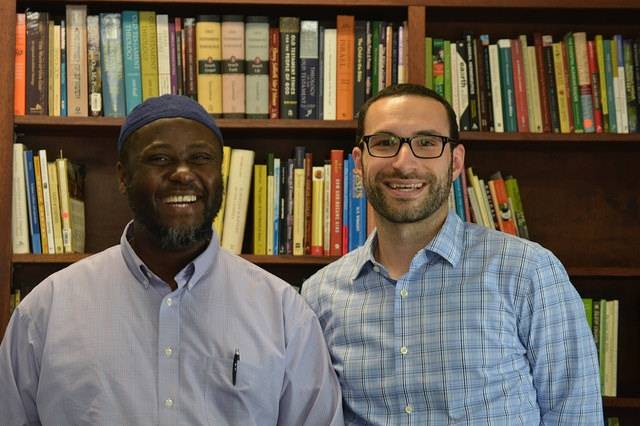
Not long after the interfaith service, something caught my eye while driving along Springfield on the east side of campus. There was a small section of land near the First Mennonite Church with a sign labeled Peace Garden. As I looked up some information about the garden, I stumbled upon this connection between the church and the CIMIC. I became intrigued and filed it away for a topic to explore once the garden was in bloom. Well it is now, and in talking with these two faith leaders I’ve learned that their friendship goes well beyond a garden.
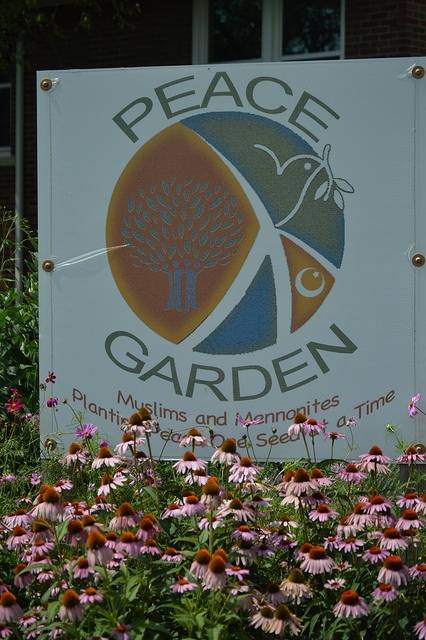
Pastor Crosby came to C-U so that his wife could attend grad school. They had not connection to the Mennonite church, but they took special notice of this church that they referred to as “that church across the street from the mosque.” They began attending, and when the longtime associate pastor retired, Crosby, who had been to seminary, took the job. He has just recently taken over as the lead pastor. Imam Ousmame has been here just over a year, coming from a mosque in Carbondale. Because of his experience as an imam in a college community with a mostly student congregation, this position was a perfect fit.
According to Pastor Crosby, the collaboration predates him, going back 15-20 years, and began with a shared parking lot. The mosque needed extra parking space for their Friday night prayer service, and since this didn’t interfere with church activities, the answer was easily yes. This relationship that began with practicality eventually grew into a friendship. In fact, when Imam Ousmame was being considered for the job, one of the criteria was a willingness to continue the relationship with First Mennonite and other local churches and to be a part of the local interfaith community. As a member of the interfaith group in Carbondale, he was up to the task.
So often, Christianity and Islam are portrayed as opposing sides, enemies even. But these two congregations have found a connection. I asked what they felt were shared values between the two religions.
Imam Ousmame: We share a lot of values. One of these things, that we shared at the Interfaith Thanksgiving, is the Golden Rule. There are a lot of other values that we share: truthfulness, honesty, love, being sincere, and the ten commandments of the Bible are also in the Koran. Even Jerusalem, is one of the holiest sites for Islam, for Judaism, and for Christianity.
Pastor Crosby: The simple recognition that we’re all part of the same social fabric and of the same community. What we do with and for each other benefits the whole. For me that’s been the most tangible thing about the peace garden. It’s taking this common ground that we have. Even so literally as the soil being the thing that nourishes all of us. Working it together and providing beauty and sometimes food out of it has this tangible appeal for expressing what we all have in common. Hospitality as well. Any time we have the opportunity to host or be a guest in another person’s sacred space, there’s an intimacy about that.
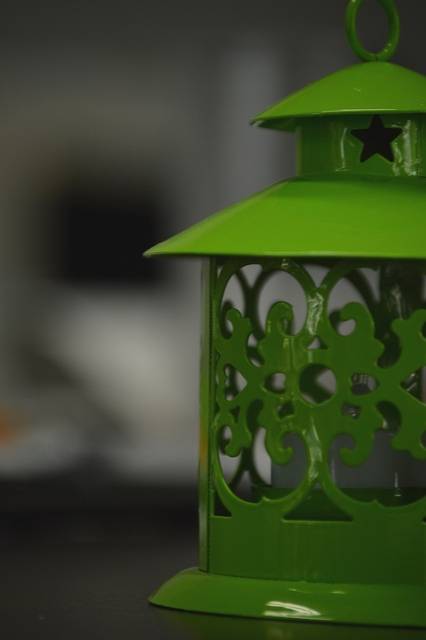
A gift from CIMIC to First Mennonite.
The garden itself has morphed and changed over the years. At times they’ve grown primarily produce and given it to local organizations such as the Times Center or the Center for Women in Transition. Currently, it’s host to native plants and is bursting with color. It’s even been used as the basis for a salsa party, where most of the ingredients were grown there, and the church and mosque had another reason to come together. In all its forms, it’s really a symbol, a representation of their friendship.
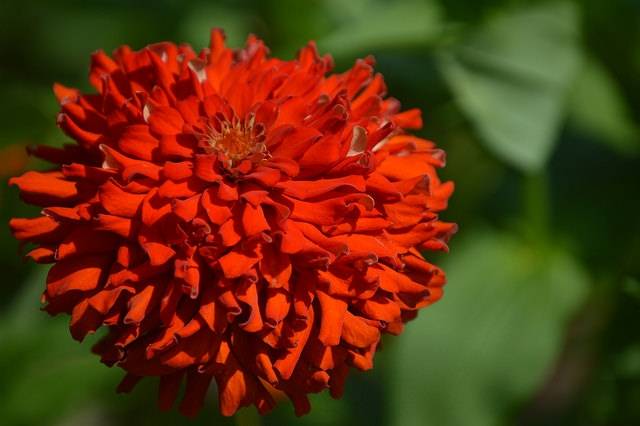
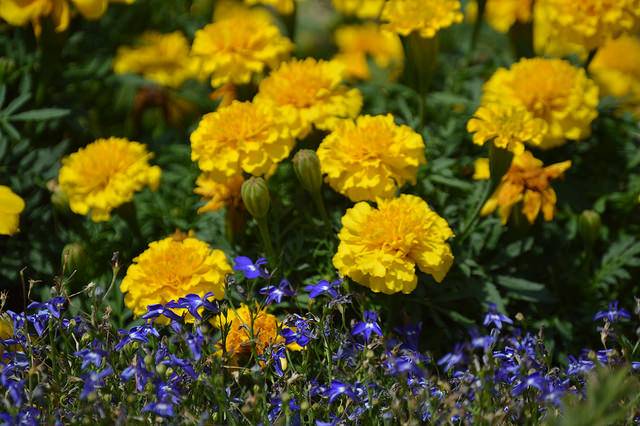
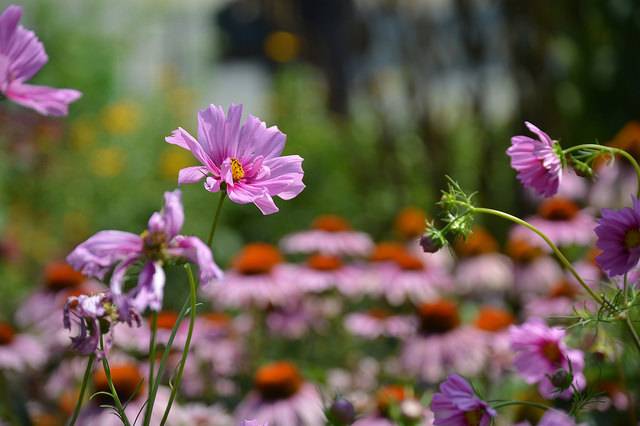 Beyond the garden, the two congregations share many events together. In the past year, they hosted an Abrahamic traditions dinner where leaders representing the three Abrahamic faiths (Christianity, Judaism, and Islam) spoke about their shared traditions and roots in Abraham. They also gathered for an interfaith picnic at Crystal Lake Park with members of the Sinai Temple, New Covenant Church, and the Church of the Brethren. On August 6th, they’ll be repeating the event with the support of the Interfaith Alliance, and the event will be open to the community.
Beyond the garden, the two congregations share many events together. In the past year, they hosted an Abrahamic traditions dinner where leaders representing the three Abrahamic faiths (Christianity, Judaism, and Islam) spoke about their shared traditions and roots in Abraham. They also gathered for an interfaith picnic at Crystal Lake Park with members of the Sinai Temple, New Covenant Church, and the Church of the Brethren. On August 6th, they’ll be repeating the event with the support of the Interfaith Alliance, and the event will be open to the community.
As we wrapped up our conversation, I asked what they would like others in the community to take away from the relationship that they’ve forged, and the example they’ve set.
Imam Ousmame: I would say appreciation for each of our congregrations. We appreciate First Mennonite, and they appreciate us. It’s about appreciating your neighbor.
Pastor Crosby: It’s about enrichment. We don’t just tolerate each other, we’ve made a conscious choice to enrich our lives and each other’s lives by getting to know one another.
From shared spaces to shared lives, the relationship that’s been cultivated between these faith communities can be an example to us all of what’s possible. How we can go beyond tolerance of differences to an embracing of common values.
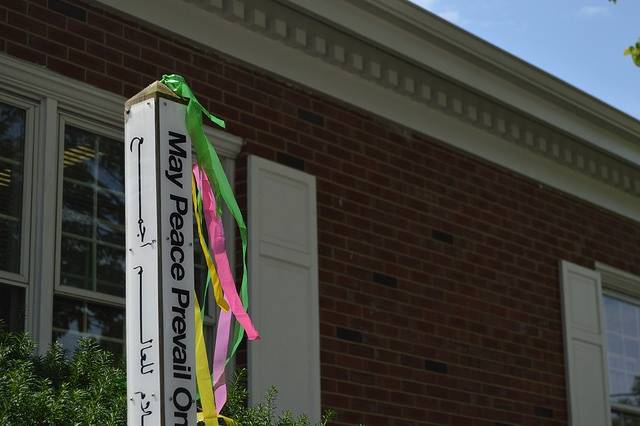 Details for the upcoming Interfaith Alliance picnic can be found here. Photo credit: Addison McClure.
Details for the upcoming Interfaith Alliance picnic can be found here. Photo credit: Addison McClure.








